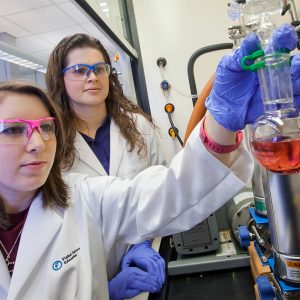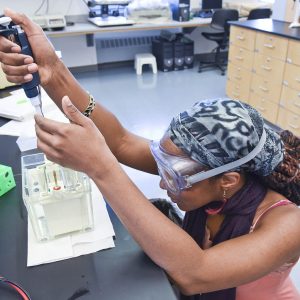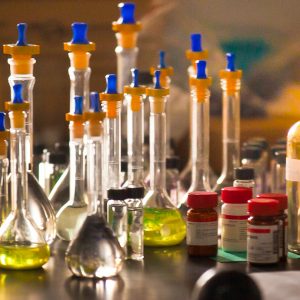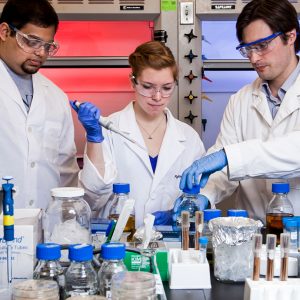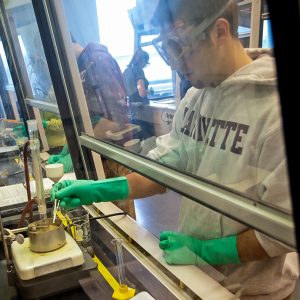Program
The Department of Chemistry offers programs that introduce students to the study of the properties, composition, and structure of matter; the changes that alter the identity of substances; and the energy changes that take place during such transformations.
The department is approved by the American Chemical Society for the professional training of chemists and offers sound training in principles and techniques for students who plan careers in chemistry and closely allied fields. For those without definite career aims, the major provides an excellent background for understanding the nature of the physical world and the problems that face a technological society, and gives insight into the philosophy, methods, and limitations of science.
Lafayette offers the A.B. and B.S. degrees with majors in both chemistry and biochemistry. The B.S. degrees are the most highly structured and rigorous. The B.S. chemistry degree meets the certification standards of the American Chemical Society. The B.S. biochemistry degree can meet with certification standards of the American Chemical Society with the appropriate choice of electives. The B.S. degrees are often preferred by graduate schools and government and industry employers who seek maximum professional capability at the undergraduate level.
Because it requires fewer and sometimes less rigorous courses in chemistry, the A.B. chemistry program offers a wider choice for the student than is possible in the B.S. curriculum. The A.B. chemistry program is the most flexible; it can involve minimum work in chemistry and more study in other fields, or courses can be selected to achieve a high degree of specialization in chemistry. The A.B. biochemistry degree requires a core of chemistry and biology courses, but it retains the flexibility inherent in the A.B. chemistry program.
Major Requirements:
Students completing majors in other areas may earn an minor in chemistry by completing the following courses:
- CHEM 103/107 and 108 (General Chemistry I and II)
- CHEM 221 (Organic Chemistry I)
- CHEM 341 (Elementary Physical Chemistry)
- Two additional courses: CHEM 211 (Foundational Inorganic Chemistry); CHEM 222 (Organic Chemistry II); CHEM 231 (Quantitative Chemical Methods); CHEM 201 (Environmental Chemistry); CHEM 350 (Survey of Biochemistry)
No more than three courses also can meet requirements in a student’s major.
